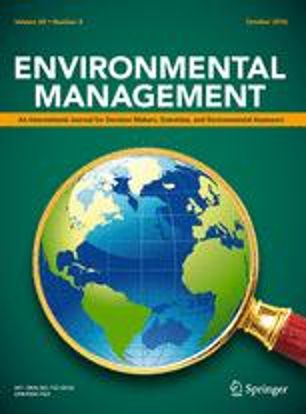Trade-off analysis has become an increasingly important approach for evaluating system level outcomes of agricultural production and for prioritising and targeting management interventions in multi-functional agricultural landscapes. We review the strengths and weakness of different techniques available for performing trade-off analysis. These techniques, including mathematical programming and participatory approaches, have developed substantially in recent years aided by mathematical advancement, increased computing power, and emerging insights into systems behaviour. The strengths and weaknesses of the different approaches are identified and discussed, and we make suggestions for a tiered approach for situations with different data availability. This chapter is a modified and extended version of Klapwijk et al. (2014).
DOI:
https://doi.org/10.1007/978-3-319-29794-1_10
Altmetric score:
Dimensions Citation Count:























